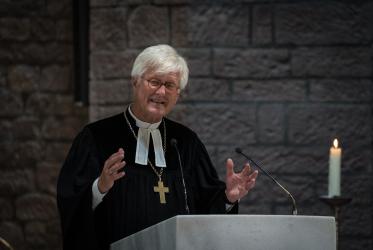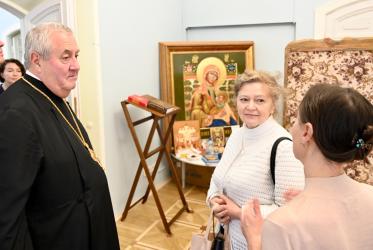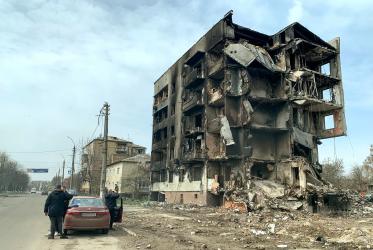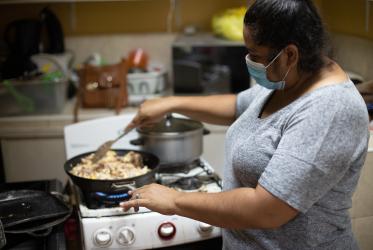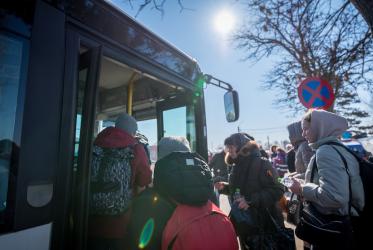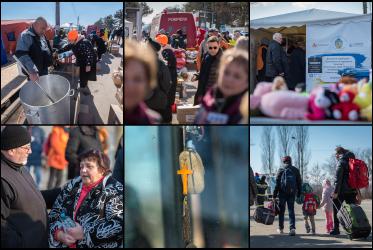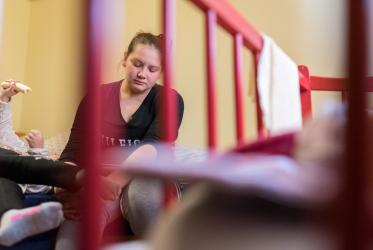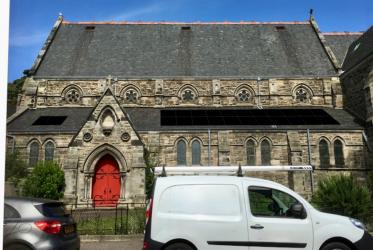Displaying 1 - 20 of 30
Ukraine: Responding to humanitarian need
08 September 2022
Scottish and UK religious leaders call for urgent climate action
20 September 2021
Applications open for WCC Eco-School
22 October 2020
New student body at Bossey Ecumenical Institute “a source of joy”
14 September 2020
Christian Aid commissions ‘requiem for the climate’
17 February 2020
WCC well-represented in Religions for Peace leadership
07 October 2019



